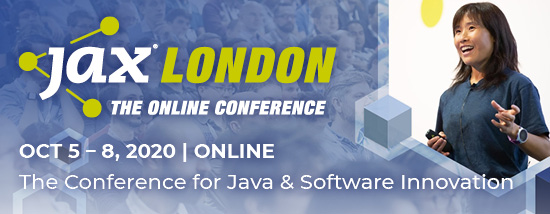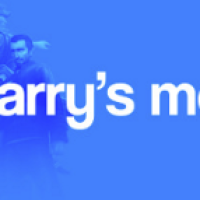A research study by The National Center for Women & Information Technology showed that “gender diversity has specific benefits in technology settings,” which could explain why tech companies have started to invest in initiatives that aim to boost the number of female applicants, recruit them in a more effective way, retain them for longer, and give them the opportunity to advance. But is it enough?
Four years ago, we launched a diversity series aimed at bringing the most inspirational and powerful women in the tech scene to your attention. Today, we’d like you to meet Chiamaka Okenwa, software engineer, International speaker and community organizer of unStack Africa and JVM Nigeria.
Today’s Woman in Tech: Chiamaka Okenwa, software engineer
 Chiamaka Okenwa is a software engineer with a demonstrated history of working in the fin-tech space with a focus on product design and development.
Chiamaka Okenwa is a software engineer with a demonstrated history of working in the fin-tech space with a focus on product design and development.
She is passionate about Java, women in technology and developer communities, serving as an International speaker and community organizer of unStack Africa and JVM Nigeria. Chiamaka enjoys speaking at events, such as java2Days, Github Africa meetup, London Java Community (LJC) meetup and the Tech(K)nowDay Conference.
When did you become interested in technology?
I have been fascinated by technology since childhood. As a child, I always had a strong interest in video games and gadgets, but I never thought about a career path in tech because it wasn’t an interest young girls were encouraged to explore.
My tech journey began in my final year as an undergraduate Marine Biology student. I had the opportunity to apply for the Google Africa Scholarship in software development and this decision was life-changing because the scholarship program gave me access to a Udacity front-end web development course as well as practical experience building web applications.
How did you end up in your career path?
My career path in tech wasn’t a traditional one. Once I completed the scholarship program, I began to search for software engineering internship opportunities. It was difficult to land an internship because of my non-CS background at that time but I eventually made a breakthrough when I got into a highly competitive internship program at a prestigious Nigerian bank.
Another challenge I had to overcome was imposter syndrome because it felt like I wasn’t as good as other interns even when I had evident success. I had to keep learning and reassuring myself that I can do just anything I set my mind on and be great at it.
Did you receive support from your family and friends? Do you have a role model?
I am happy to have an incredibly supportive family and even happier to have friends who were also pursuing the same career path. I think my career journey wasn’t as challenging because of the support system and mentorship I had along the way.
When it comes to software development my role model is Trisha Gee, a developer advocate for JetBrains. I admire her because she has positively impacted the java community by sharing from her wealth of experience and aiding the growth of java developers across the world.
Another challenge I had to overcome was imposter syndrome because it felt like I wasn’t as good as other interns even when I had evident success.
Did someone ever try to stop you from learning and advancing in your professional life?
Yes, earlier in my career I had a tech internship, and the expectation was that interns would get a full-time developer role after the internship. During my post-internship interview, I was asked to pick between becoming a project manager or a business analyst.
The logic behind forcing me to make one of these choices was that they were more suitable jobs for a lady – the guys were allowed to apply for the full-time developer role. Rejecting the job offer was a difficult choice – because I needed a job at the time – but I am happy I decided to stick to software development.
A day in Chiamaka’s life
I work as a Software Engineer (backend) at Renmoney. Renmoney is Nigeria’s most convenient lending company for receiving loans.
I start my day with our daily standup to discuss the progress of the projects we are working on for the day. We also discuss any impediments and see if we can resolve them at a later time. I go to my Jira board to update the status of my current project and to plan my day which also includes supporting other team members or doing code-reviews.
What are you most proud of in your career?
My career journey as a software engineer has been exciting and I am proud to have been given the opportunity to use my knowledge and experience in advocating and promoting diversity in tech. I have also been able to give talks at conferences like java2Days, tech(K)nowDay and help organize conferences like unStack Africa and jLove conference.
Why aren’t there more women in tech?
For the past few years, one of the most pressing issues has been the huge gender gap in the tech space and this has been a result of the lack of role models for women. This is mainly due to the stereotype of boys being better at maths and science. There is also the fact that women are not being celebrated or recognized as much as they should be. Another reason why there aren’t many women could be due to the lack of women in the talent pool. Statistics has shown that fewer women are studying technology-based subjects compared to their male counterparts and this means that there are fewer women to choose from when recruiting.
So it’s clear that to get more women into doing tech, we must encourage more women to take technology-based subjects, or possibly review our curriculum to have technology-related courses that can introduce everyone, females especially, to tech.
Could you name a few challenges (or obstacles) women in tech face?
- Gender discrimination in tech, that latently make a lady in tech to feel lesser than his/her male counterpart, since she is assigned easier tasks.
- Lack of adequate mentors and female tech leaders in the tech space, that could change the tech landscape and tech firms and departments more gender inclusive.
Always look out for people you admire and reach out to them because they can encourage and support you during this journey.
Would our world be different if more women worked in STEM?
Yes, because if more women worked in STEM, we would be able to create a more inclusive environment for everyone. Women will also contribute to making products that can be better suited for other women.
There is no question that women have brought and will continue to bring great innovations in the world we live in. If more women worked in tech, we would have had more tech talents generally, and probably not be having the issue of tech talent supply deficit as being experienced today.
The discussion about diversity is gaining momentum. How long will it take to see results from the current debate?
The quest for diversity is an ongoing one and even though we have seen improvements in some areas, there is still a long way to go before we can say that we have built a truly diverse workforce. It is difficult to say how long it will take before we can see results but I believe that when we have a close number of women and men in leadership positions in the tech industry, we can then say that the discussion about diversity has started yielding results.
What advice (and tips) would you give to women who want a tech career?
Go for it and give it a try. Always look out for people you admire and reach out to them because they can encourage and support you during this journey. I would encourage women to find mentors because they can put them ahead in their career path.
The tech industry is fast paced so there is so much to learn but do not let that discourage you. It is always important to find what technology you love and solidify your knowledge in that area.
More Women in Tech:
- Women in Tech: Molly Mackinlay, Product lead at IPFS
- Women in Tech: Liudmyla Taranenko, AI engineer at MobiDev
- Women in Tech: Viktoryia Verasava, TypeScript Developer at McMakler
- Women in Tech: Anke Sperger, internal sales representative at Axis Communications GmbH
- Women in Tech: Stefanie Khan, Global Data Analytics Leader at Xerox
For even more Women in Tech, click here
The post Women in Tech: “The quest for diversity is an ongoing one” appeared first on JAXenter.
Source : JAXenter

























